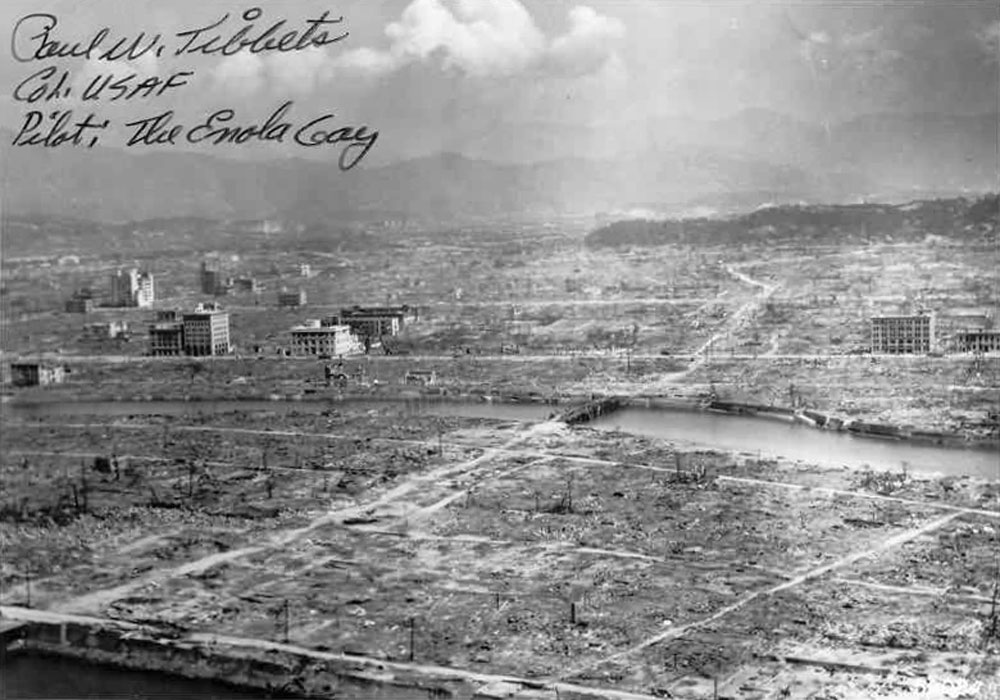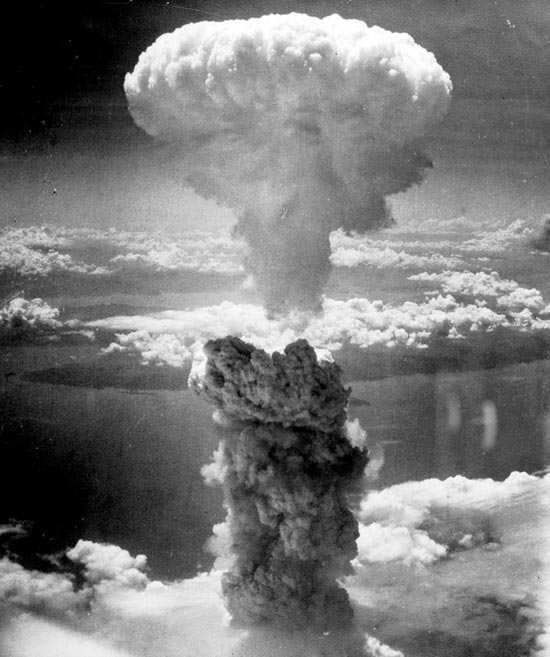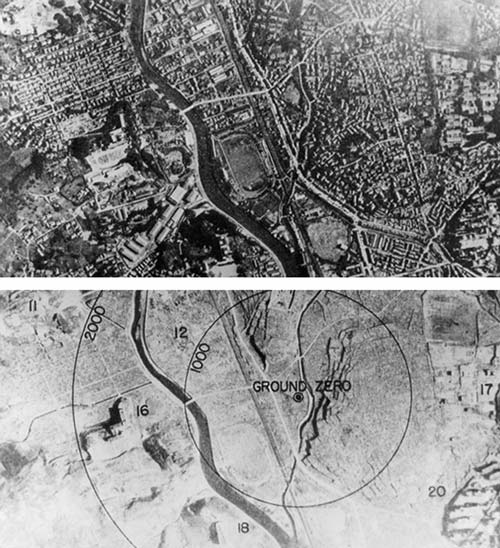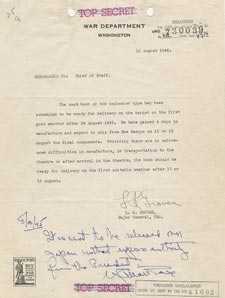On the 75th anniversary of nuclear weapons, Dr. Michael Shermer presents a moral case for their use in ending WWII and the deterrence of Great Power wars since, and a call to eventually eliminate them. This essay was excerpted, in part, from Michael Shermer‘s book, The Moral Arc, in the chapter on war.
Three quarters of a century ago this summer, nuclear weapons altered our civilization forever. On July 16 the Trinity plutonium bomb detonated with the energy equivalent of 22 kilotons (22,000 metric tons) of TNT, sending a mushroom cloud 39,000 feet into the atmosphere. The explosion left a crater 76 meters wide filled with radioactive glass called trinitite (melted quartz grained sand). It could be heard as far away as El Paso, Texas. On August 6 the Little Boy gun-type uranium-235 bomb exploded with an energy equivalent of 16–18 kilotons of TNT, flattening 69 percent of Hiroshima’s buildings and killing an estimated 80,000 people and injuring another 70,000. On August 9 the Fat Man plutonium implosion-type bomb with the energy equivalence of 19-23 kilotons of TNT leveled around 44 percent of Nagasaki, killing an estimated 35,000 to 40,000 people and severely wounding another 60,000.1

The aftermath of Little Boy

On August 9, 1945 the Fat Man plutonium implosion-type bomb with the energy equivalence of 19–23 kilotons of TNT leveled around 44 percent of Nagasaki, killing an estimated 35,000 to 40,000 people and severely wounding another 60,000.

Before and aftermath of Nagasaki

Click image to view larger PDF. Had the Japanese military hardliners had their way to continue the war into the fall, Groves had three more bombs readied for September and another three for October. Here he instructs his Chief of Staff that the next bomb will be ready to drop on after August 24. Emperor Hirohito capitulated on August 15, thereby saving millions of lives of his citizens.
As documented in the memo below dated August 10, 1945, if the Japanese had not surrendered the head of the Manhattan Project, Major General Leslie R. Groves, had another Fat Man-type plutonium implosion bomb ready to go after August 24 that would have likely killed another 50,000 to 100,000 people.2 And had the Japanese military hardliners had their way to continue the war into the fall, Groves had three more bombs readied for September and another three for October. President Harry Truman was not exaggerating when he threatened Japan with “a rain of ruin from the air, the like of which has never been seen on this Earth.” Truman did agonize about dropping more nukes on Japan, troubled as he was by the thought of more innocents and noncombatants being killed. He wrestled that decision away from the military. (Note Groves’ handwritten addendum to his memo that “It is not to be released on Japan without express authority from the President.” U.S. presidents have had sole authority to use nuclear weapons ever since.) However, further bombings proved unnecessary. On August 15 Emperor Hirohito, against the wishes of some of Japan’s military leaders, announced on the radio that Japan would capitulate. On September 2 they signed the surrender documents in Tokyo Bay, ending the Second World War.3
On this 75th anniversary of the summer of the bomb I want to make the case that their use was necessary to end the war, that their continued existence has acted as a deterrence against another Great Power war — but that we must eliminate them entirely for the long-term existence of our civilization and possibly our species. […]
Read the complete essay
No comments:
Post a Comment